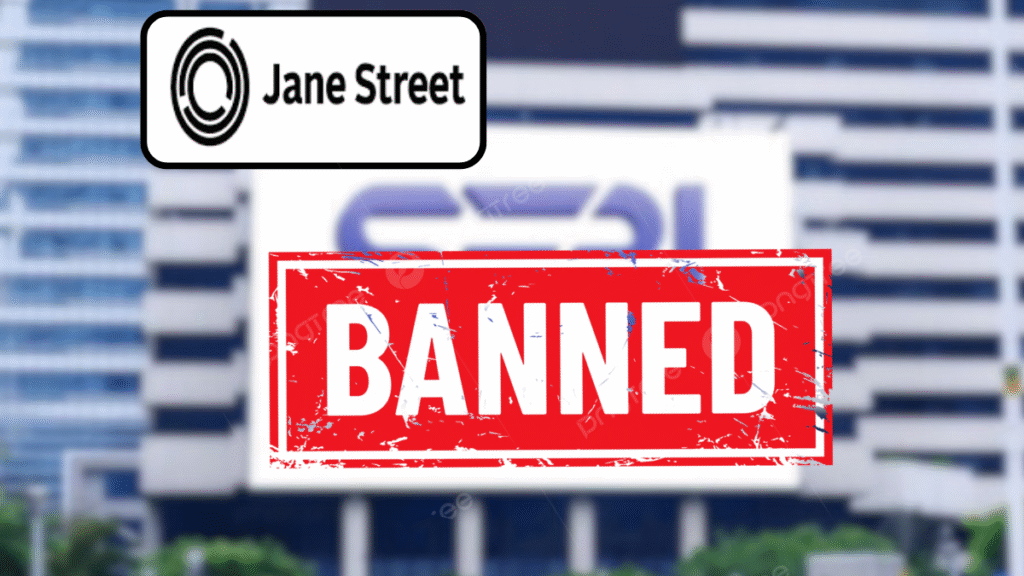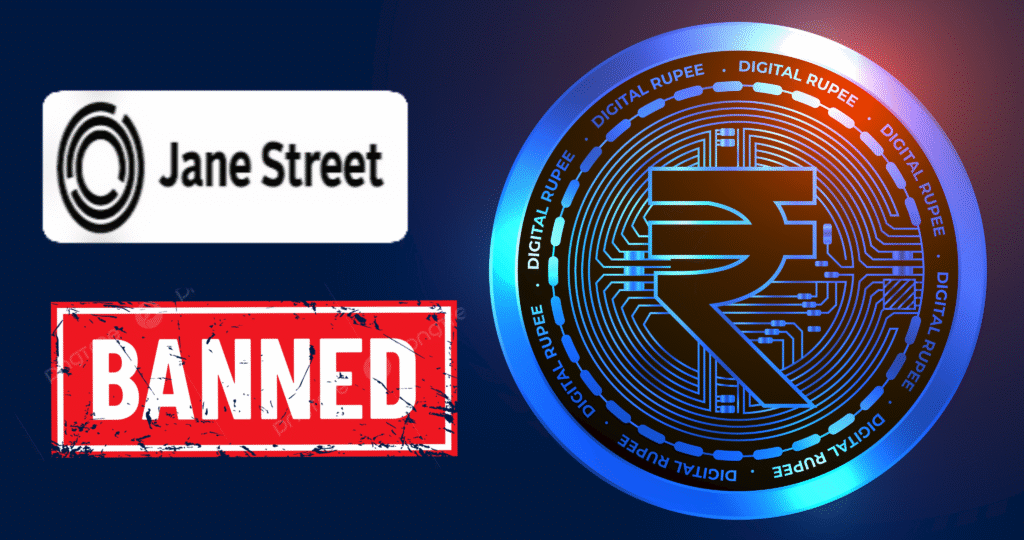
jane street banned India
SEBI Imposes Trading Ban on Jane Street Group in Landmark Order
In a dramatic move shaking up the Indian financial markets, the Securities and Exchange Board of India (SEBI) has barred Jane Street Group and its associated entities from participating in Indian stock trading activities. The interim ban comes amid allegations of manipulation in the country’s rapidly growing derivatives segment.
According to SEBI’s interim directive issued on July 3, four entities under the Jane Street umbrella JSI Investments, JSI2 Investments Pvt Ltd, Jane Street Singapore Pte Ltd, and Jane Street Asia Trading have been prohibited from accessing the Indian stock market until further notice. The ban is expected to remain in effect as SEBI continues its investigation into suspicious trading patterns that allegedly distorted market prices.
Who Is Jane Street Group?

Jane Street Group, founded in 2000, is a major global proprietary trading firm known for its presence in the financial services sector. With over 3,000 employees worldwide and offices spanning key financial hubs, the firm has long been recognized for its sophisticated quantitative trading strategies.
Jane Street’s operations have traditionally included extensive activity in derivatives markets, which allow traders to speculate on the future prices of assets. In India, derivatives trading has seen explosive growth in recent years, making it a lucrative yet increasingly scrutinized space.
Why Did SEBI Ban Jane Street?
SEBI’s interim order cited concerns about possible market manipulation through complex derivatives positions that may have led to artificial price movements, undermining market integrity and investor trust. While specific details of the trades under investigation have not been disclosed, SEBI’s action signals heightened vigilance against potential abuse in India’s booming derivatives ecosystem.
The regulator emphasized that the restrictions are temporary and will remain in force while a detailed probe is conducted to determine whether the trades violated securities laws or unfairly impacted other market participants.
Impact on Indian Stock Markets and Derivatives Trade
The ban on Jane Street, a significant foreign institutional player, could trigger short-term volatility in India’s derivatives markets. Analysts believe that traders may see reduced liquidity and increased price swings in certain segments where Jane Street was an active participant.
Market watchers are also anticipating increased regulatory oversight on algorithmic and high-frequency trading, areas where global proprietary firms like Jane Street have historically excelled.
What Happens Next?
The future course of action will depend on SEBI’s investigation findings. If evidence of deliberate manipulation is confirmed, Jane Street and its affiliated entities could face hefty fines, extended bans, or even criminal proceedings under Indian securities law.
On the other hand, if the investigation concludes without substantiating wrongdoing, the ban could be lifted, allowing Jane Street to resume trading operations in India.
Global Repercussions: A Warning Signal to Other Foreign Investors?
SEBI’s decisive step serves as a clear message to foreign institutional investors and proprietary trading firms: India is committed to maintaining fair and transparent markets. Regulators worldwide will be closely watching the outcome, as similar issues of market manipulation and algorithmic trading abuses have surfaced in other jurisdictions.
For India, this episode highlights the challenges of balancing rapid market growth with effective regulatory oversight, especially in complex financial products like derivatives.
Disclaimer: The information in this article is based on SEBI’s interim order dated July 3, 2025, and publicly available data. It does not constitute financial advice or a recommendation to buy or sell any securities. Readers are advised to consult certified financial professionals before making investment decisions.







